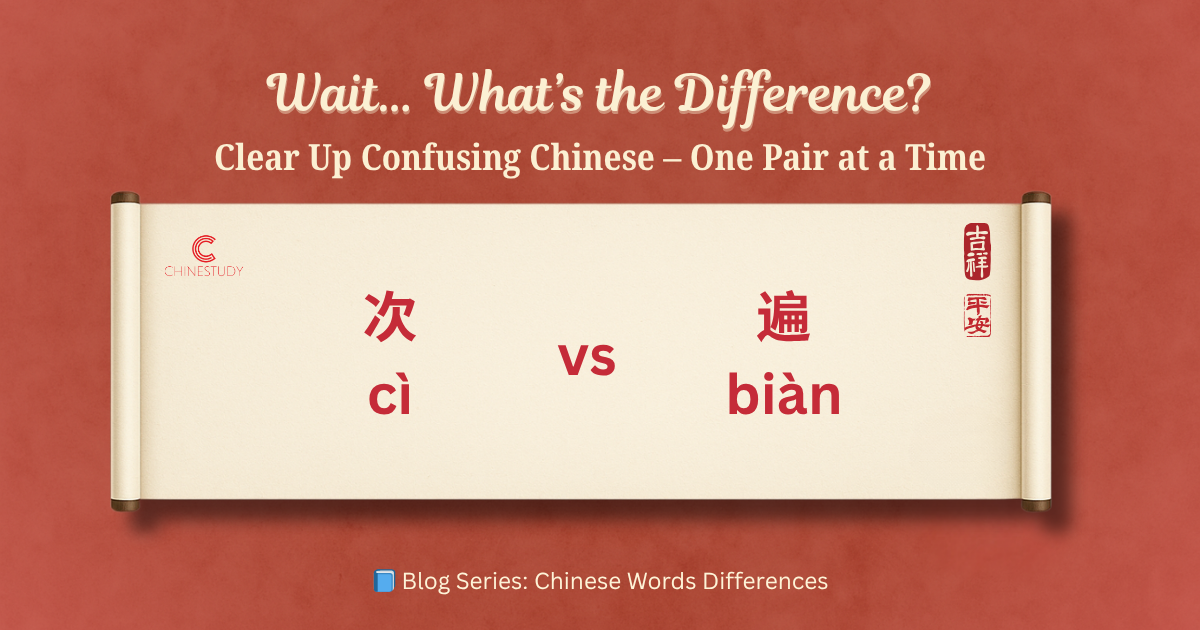
🌀 次 cì vs 遍 biàn – What’s the Difference?
Both 次 and 遍 mean “time(s),” but they’re not the same! Learn when to use 次 for counting actions, and when 遍 is better for complete processes — with examples, mistakes, and a quick quiz.
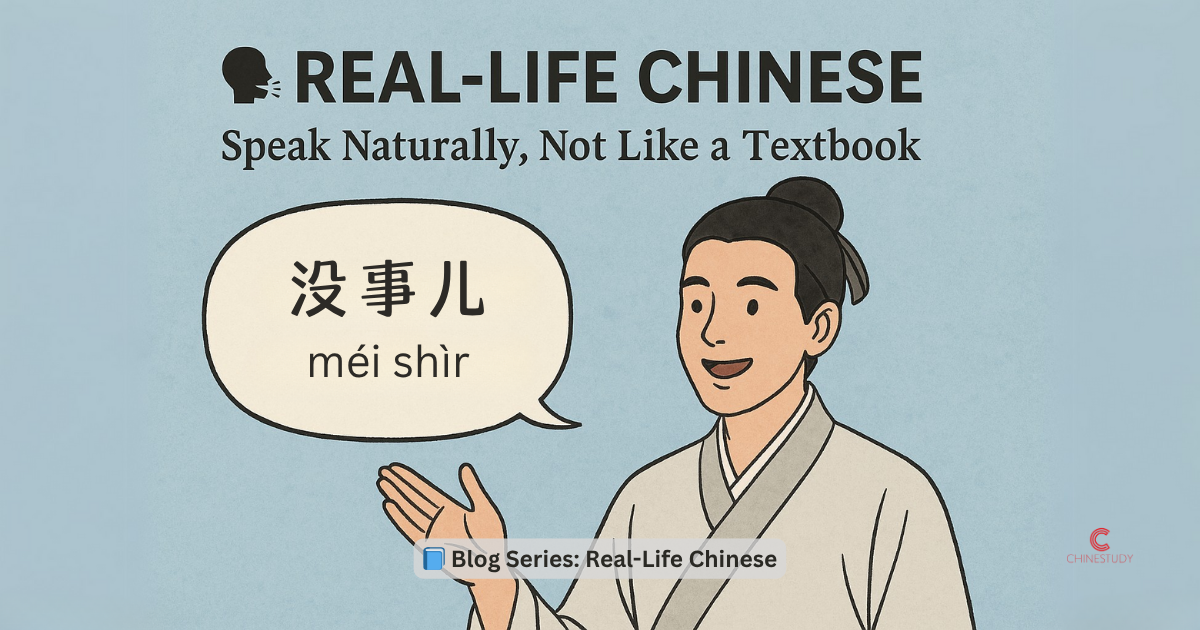
How to Say “It’s Okay” Naturally in Chinese — Not Just “没关系”
“没关系” is fine—but in real life, Chinese people often say “没事儿” or “没什么啦” instead. These phrases sound warmer, friendlier, and more natural.
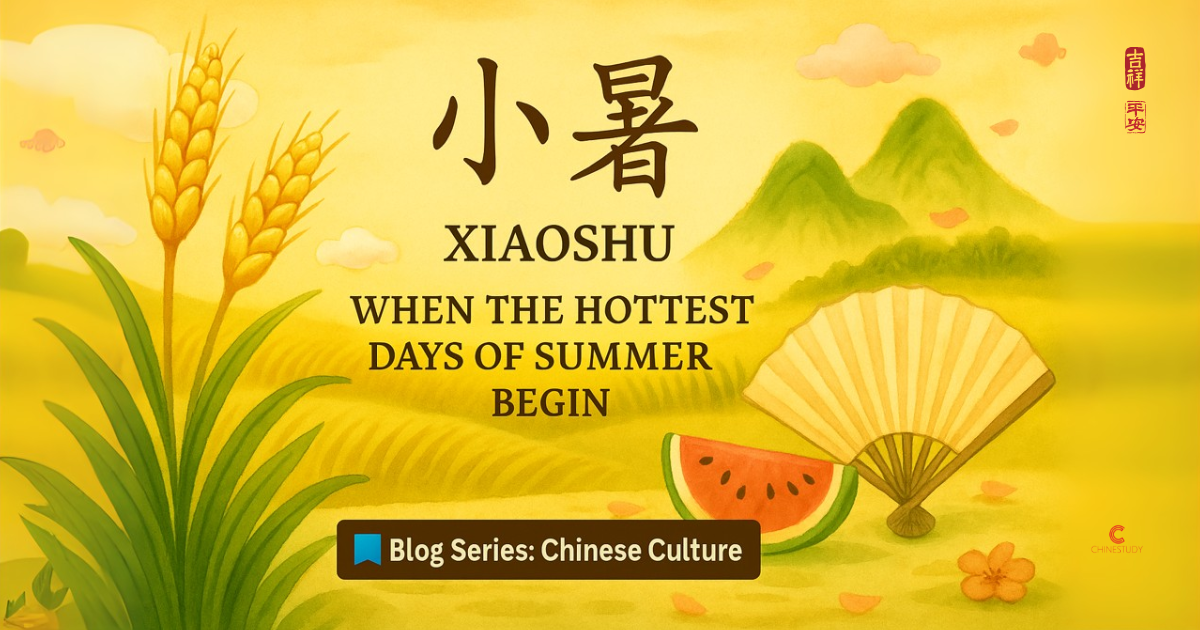
🍉 小暑 Xiǎoshǔ – The First Signs of Summer Heat in China
Learn what 小暑 (Xiǎoshǔ) means, how people respond to the heat, and why this solar term matters in Chinese life and language.
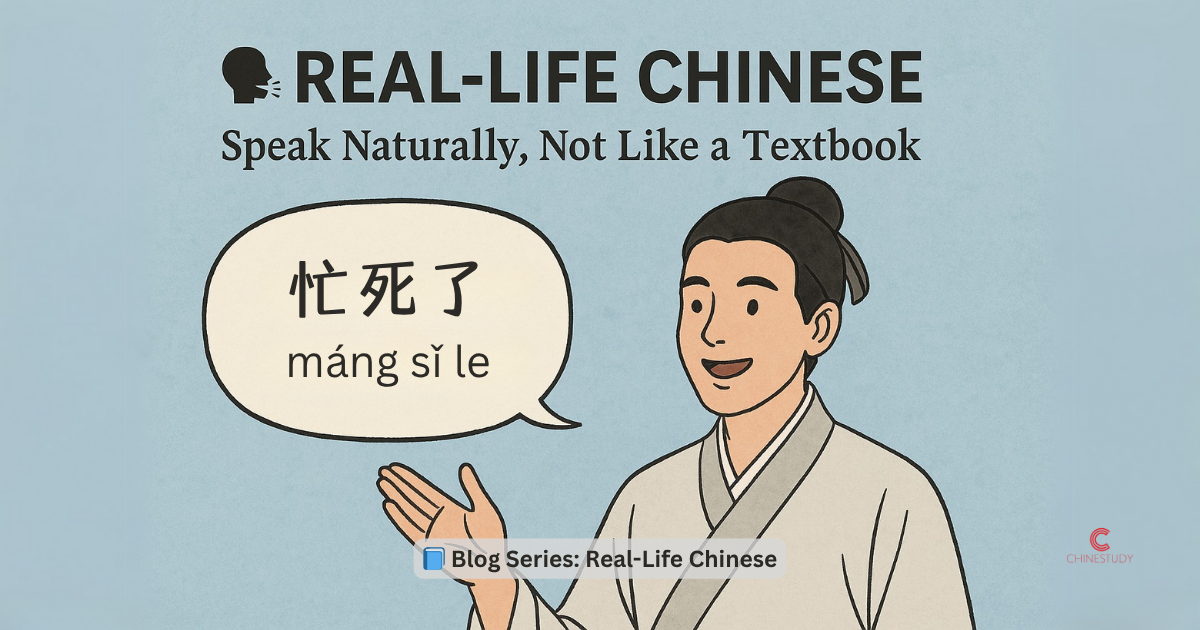
How to Say “I’m Busy” Naturally in Chinese — Not Just “我很忙”
“我很忙” is correct but sounds robotic. Learn how native speakers really say they’re busy with phrases like “挺忙的” and “忙死了” — colorful, casual, and truly Chinese.
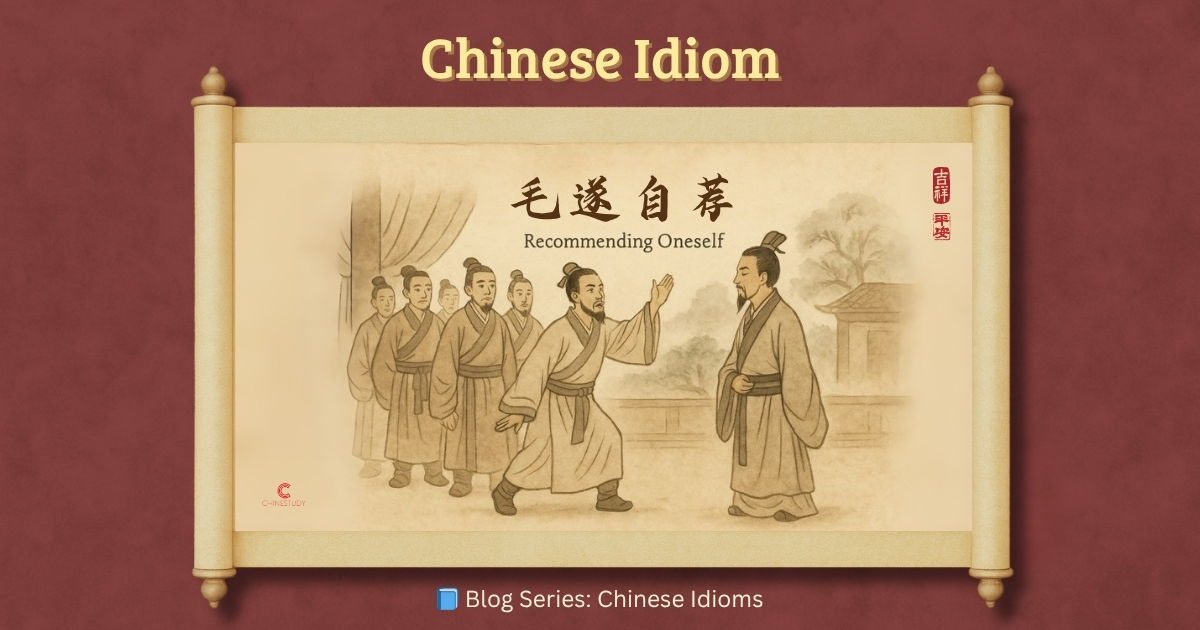
🙋♂️ 毛遂自荐 máo suì zì jiàn – Boldly Recommend Yourself
Discover the inspiring story of Mao Sui, who boldly stepped forward to help his state. Learn how 毛遂自荐 (máo suì zì jiàn) became a symbol of confidence, courage, and perfect timing.
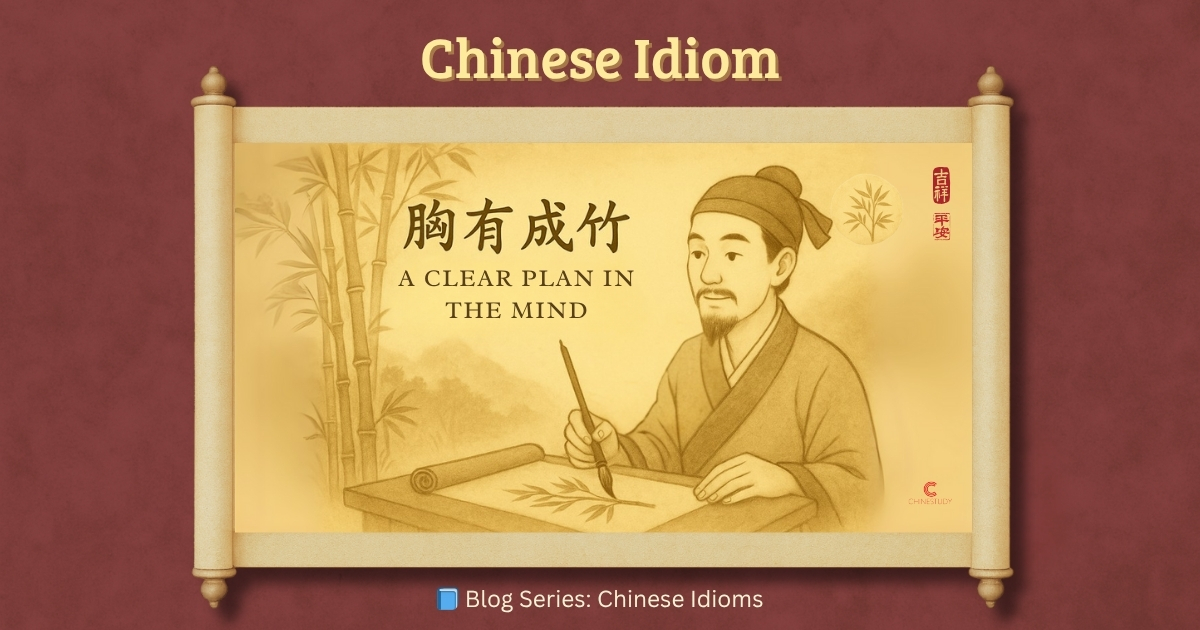
🎋 胸有成竹 xiōng yǒu chéng zhú – Calm and Ready to Begin
Learn how 胸有成竹 (xiōng yǒu chéng zhú) tells the story of a painter who saw the bamboo clearly in his mind before painting it. This idiom teaches the power of preparation and confidence before taking action.
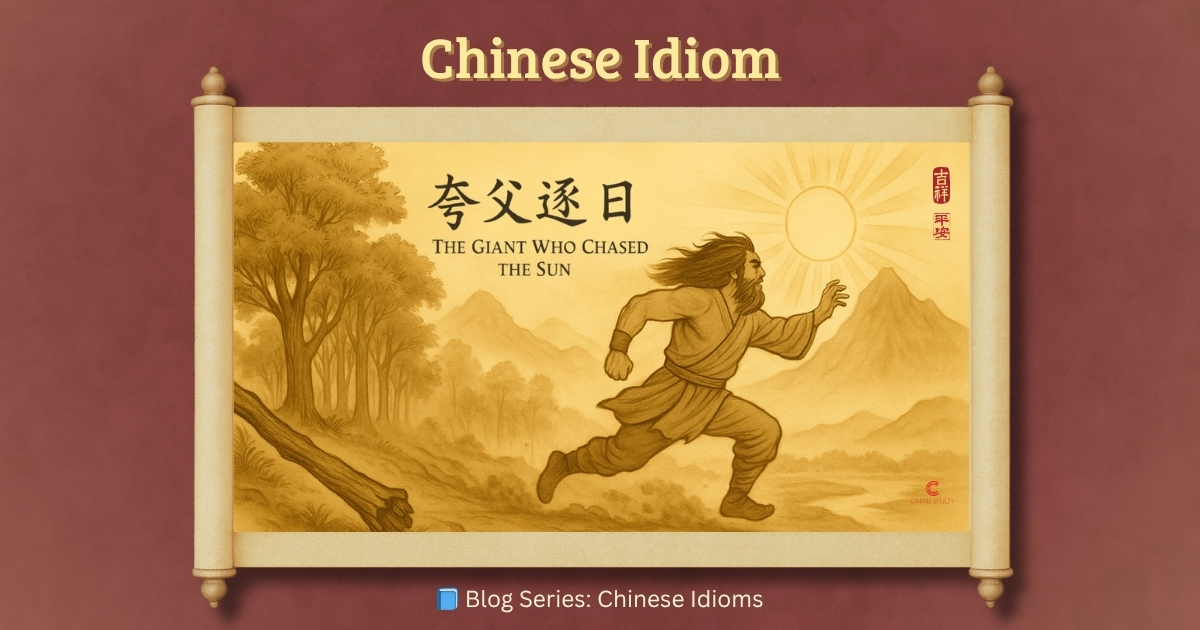
🌞 夸父逐日 kuā fù zhú rì – The Giant Who Chased the Sun
Discover the legendary story of Kua Fu, a giant who chased the sun to save his people. Learn how 夸父逐日 kuā fù zhú rì became a powerful Chinese idiom about courage, sacrifice, and ambition.
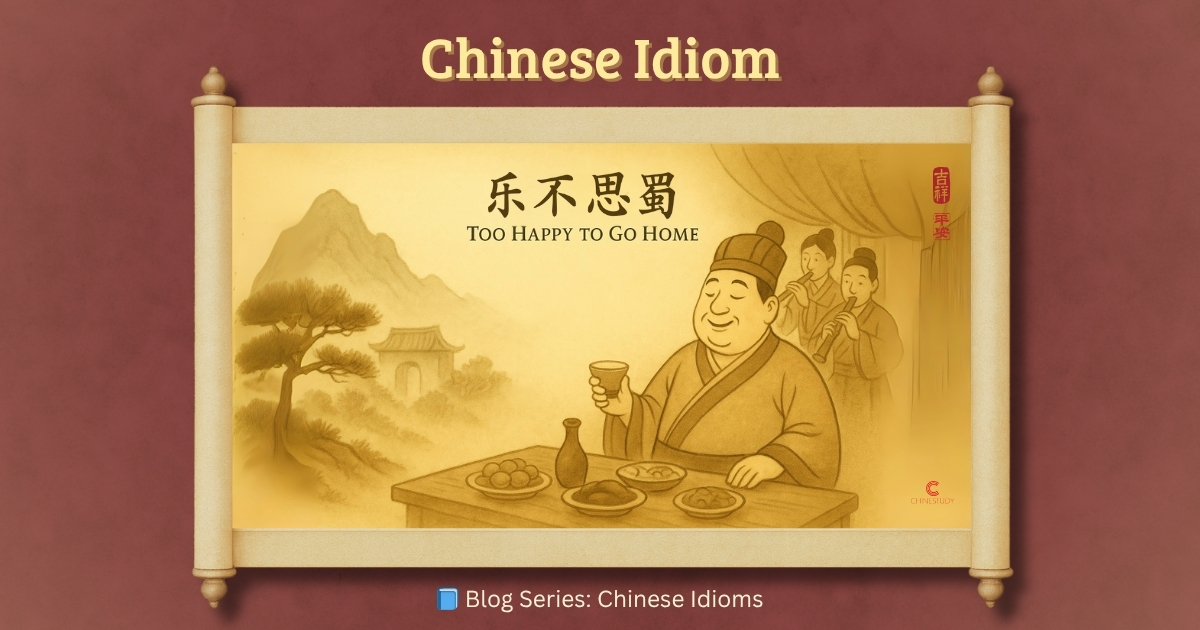
🍷 乐不思蜀 lè bù sī shǔ - Too Happy to Go Home
Discover the story of an emperor who got so comfortable in his new life, he forgot about his lost kingdom. Learn how 乐不思蜀 reminds us that joy can sometimes make us forget our roots.
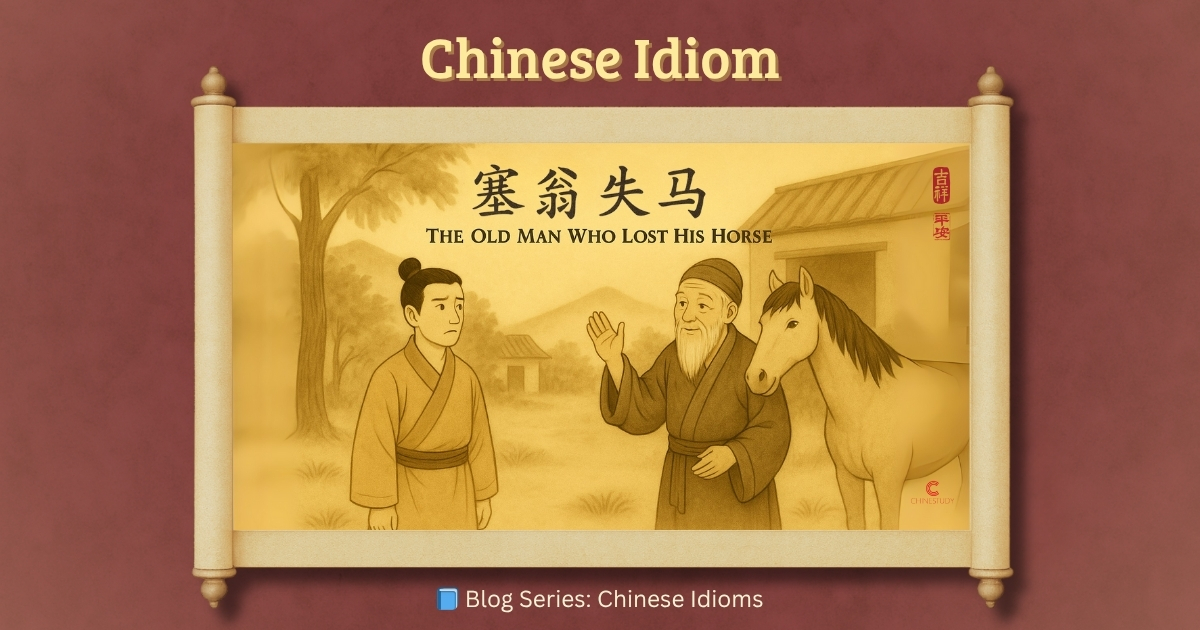
🐎 塞翁失马 sài wēng shī mǎ – A Blessing in Disguise
Learn how the story of a lost horse teaches us to stay calm during life’s ups and downs. This idiom reminds us that bad luck may lead to good fortune — and vice versa.
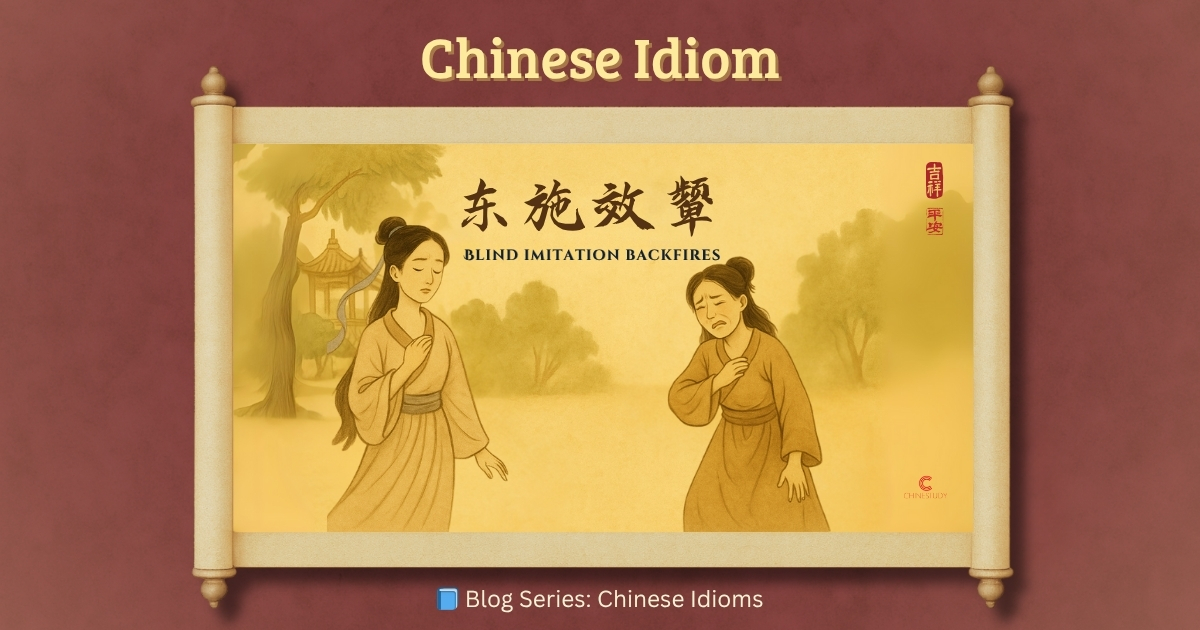
😬 东施效颦 dōng shī xiào pín – Blind Imitation Backfires
When imitation goes wrong… Discover the humorous Chinese idiom “东施效颦” and learn how copying without understanding can lead to embarrassing results.
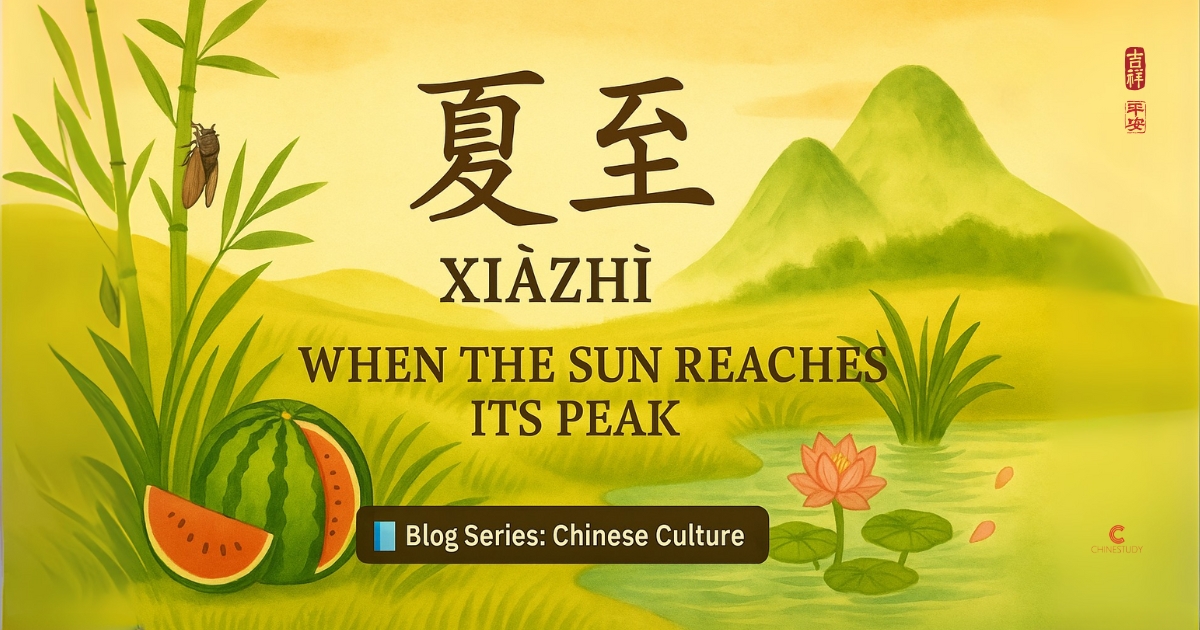
☀️ 夏至 Xiàzhì – The Longest Day of Sunlight and Noodles
夏至 (Xiàzhì) marks the longest day of the year in China. Discover how this solar term connects nature, tradition, and the simple joy of noodles.
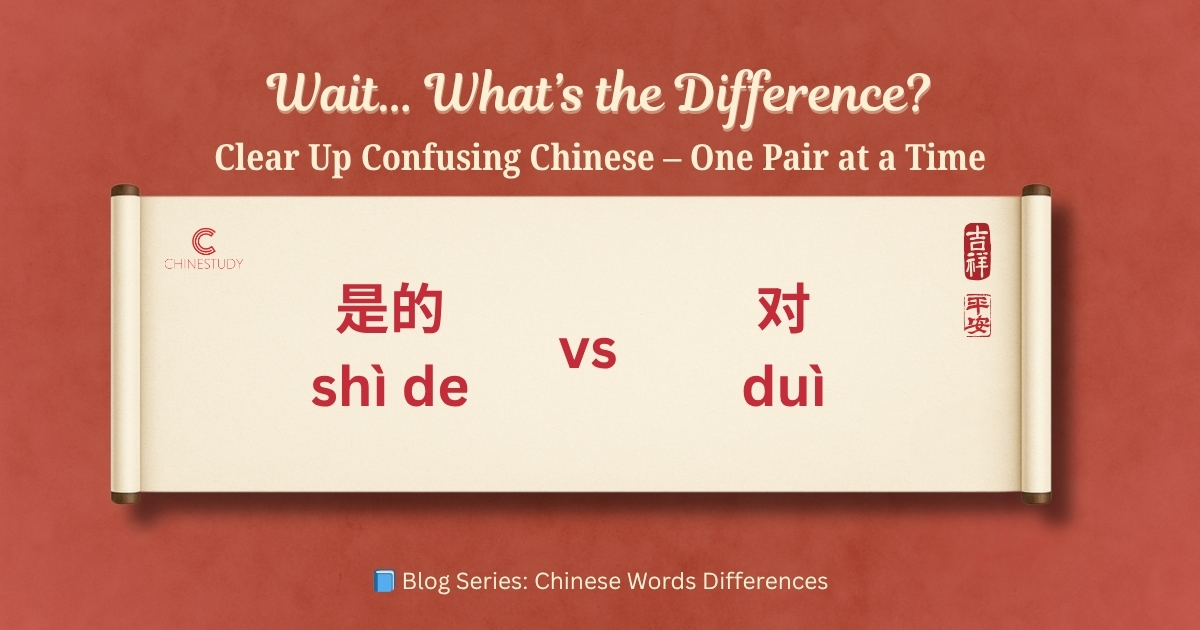
🗣 是的 shì de vs 对 duì – What’s the Difference?
Both 是的 and 对 can mean “yes” — but they’re not exactly the same! Learn when to use which, how they differ in tone, and when they’re interchangeable (with examples and a quick quiz).
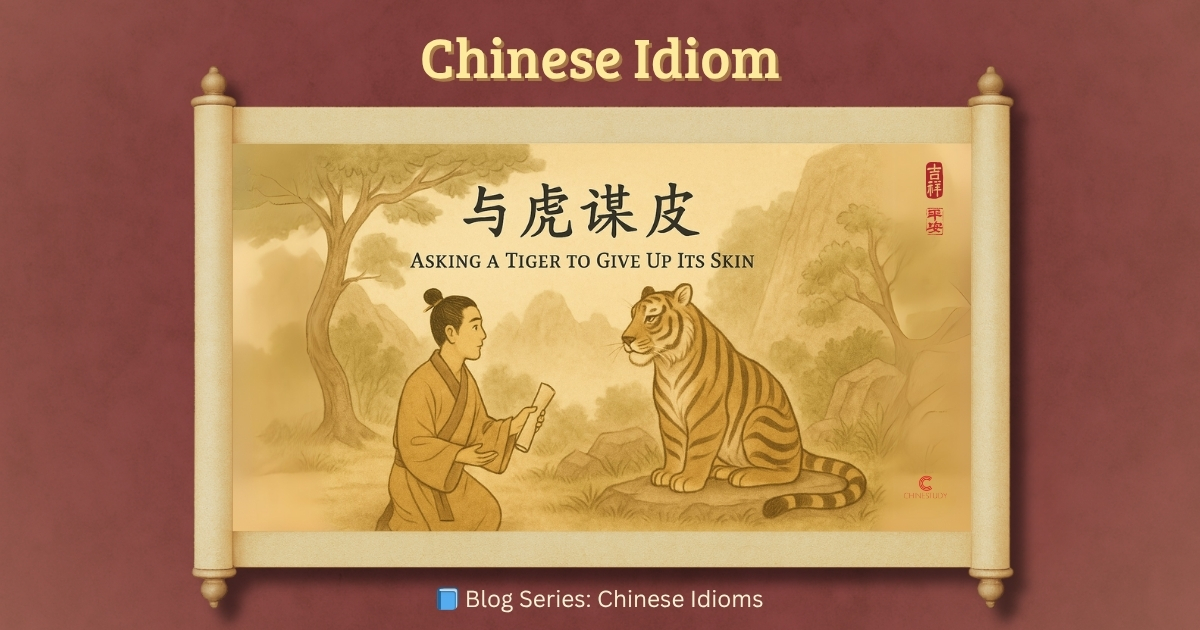
🐯 与虎谋皮 yǔ hǔ móu pí – Asking a Tiger to Give Up Its Skin
This idiom reminds us that some requests are simply impossible — especially when they go against someone’s self-interest. Learn the story, meaning, and how to use 与虎谋皮 with real examples and visual memory tips.
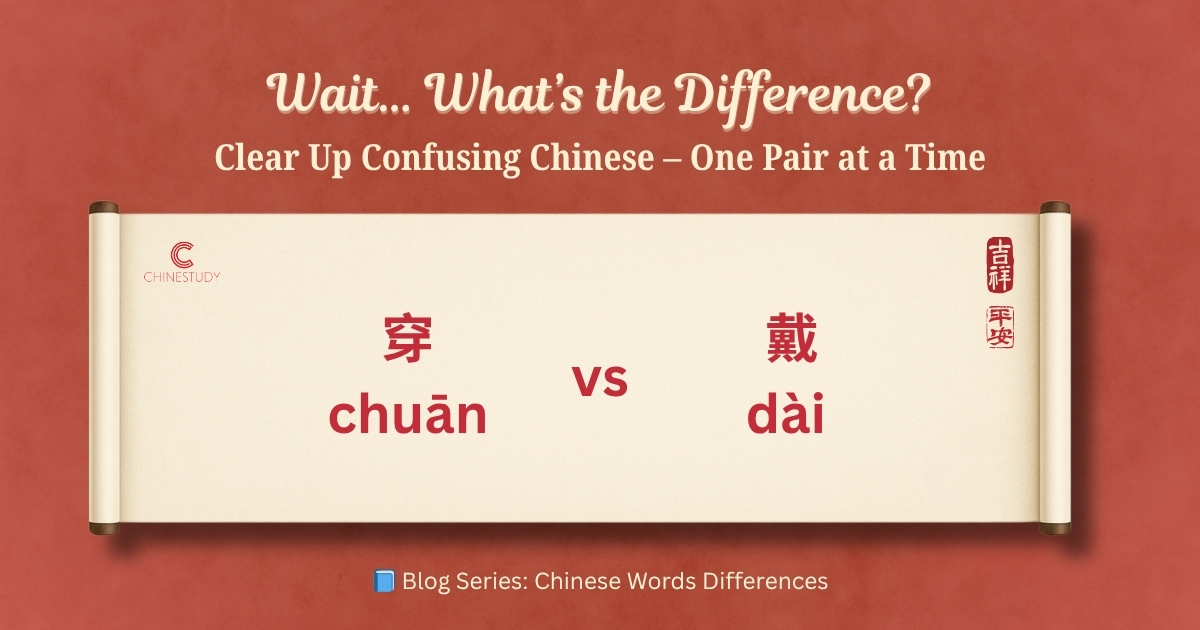
👗 穿 chuān vs 戴 dài – What’s the Difference?
Think both 穿 and 戴 mean “to wear”? Not quite! In Chinese, different words are used for clothing vs accessories. This blog shows you when to use which — with examples, mistakes, and a quick quiz!
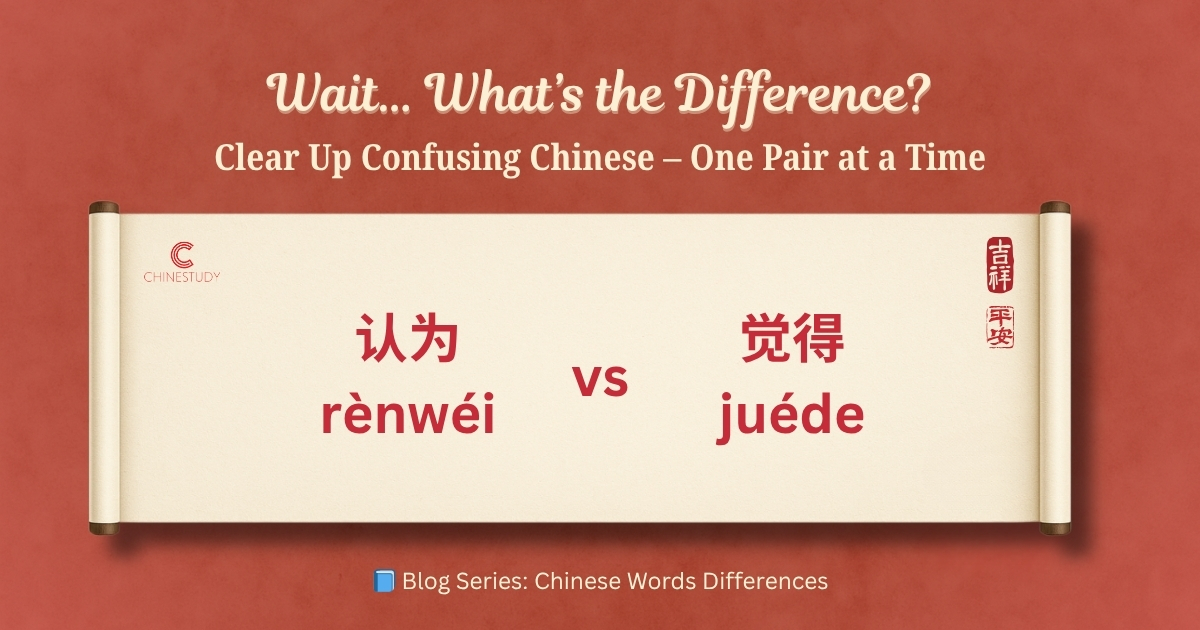
🤔 认为 rènwéi vs 觉得 juéde – What’s the Difference?
认为 and 觉得 both mean “to think,” but they feel very different. One is formal and logical, the other casual and personal. Learn when to use each one with simple examples!
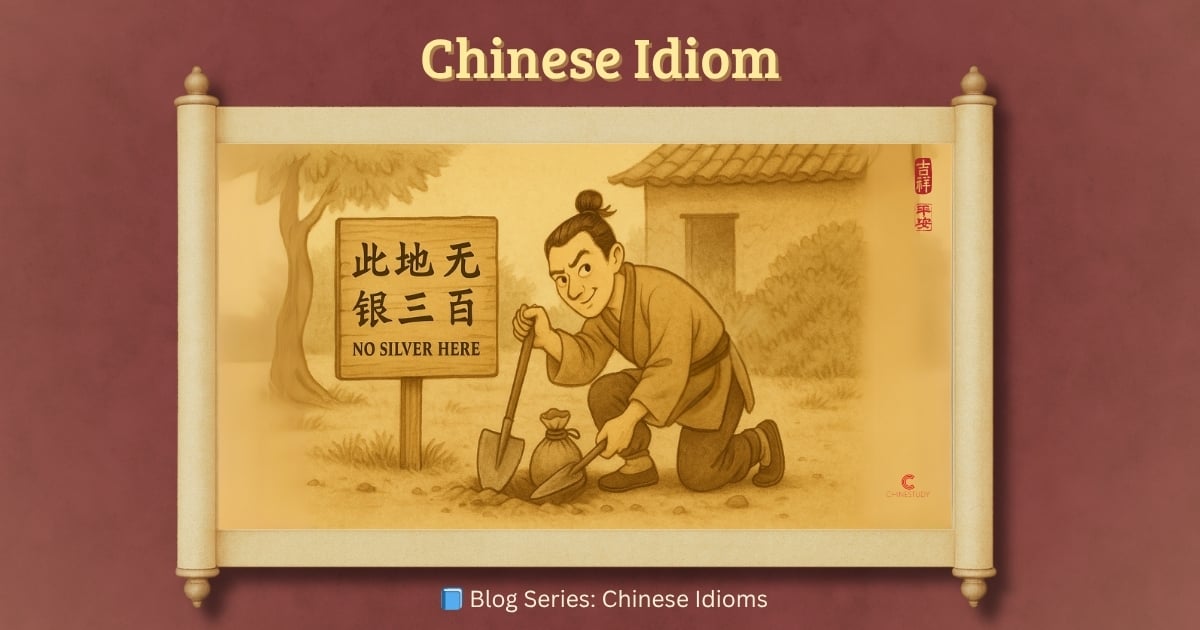
🪙 此地无银三百两 cǐ dì wú yín sān bǎi liǎng – “No Silver Buried Here!”
This idiom tells the ironic story of a man who exposed his own secret while trying to hide it. Learn how 此地无银三百两 became a phrase for giving yourself away.
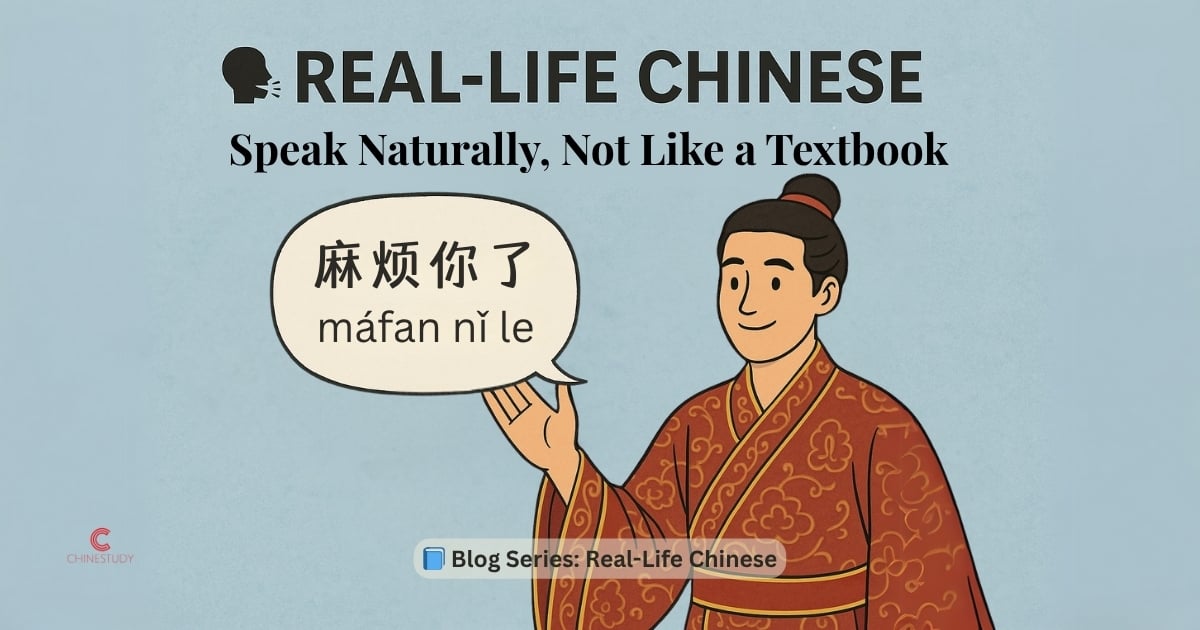
How to Say “Thank You” Naturally in Chinese — Not Just “谢谢”
“谢谢 Xièxie” is polite, but it can sound generic. Learn three heartfelt ways to show gratitude the way native speakers do.